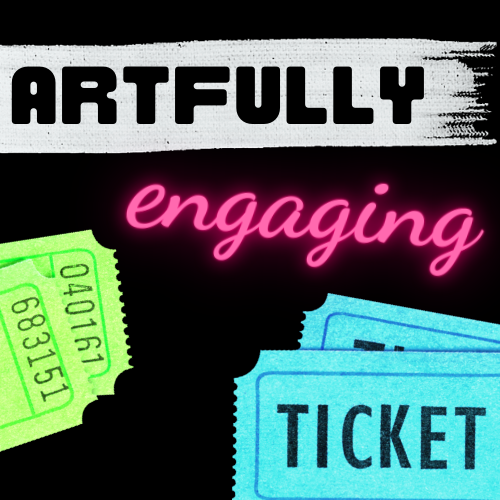Enjoy the interview and support Matthew's work by attending an upcoming free play reading at the Capri Theater in North Minneapolis. He gave me a sneak peek of the script for TV Boyfriend and I am telling you that you do not want to miss your chance to experience the public reading of his engaging "coming out romance!"
|
What does a Playwright in Residence do?
Matthew: I have a great group of collaborators who are committed to doing new work, and my work in particular. Once we find ourselves a new space and sufficient funding for productions, a new play by me is something we plan to have as part of every season at Workhouse. It’ll be the primary incubator for all my work going forward. At the moment, a lot of my energies are devoted to supporting the work of other writers through the Greenhouse Project, which is Workhouse Theatre’s new play development program. I help spread the word to writers to submit the first 25 pages of their plays to us. I read all those excerpts. I also marshal the efforts of a group of about a dozen volunteer readers to go over the excerpts. All excerpts are read by three to five people, who rank them on a scale of 1 to 5. Anything averaging 3 or more, we ask for a full script. I then read all the full scripts, along with the co-artistic directors Bethany Hummel and Richard Jackson, and we make a determination which plays we want to do readings of. I contact the writers and set up the schedule. I also contact every writer who submits work, whether we want to see the script or not, whether we want to do a reading or not. And we encourage everyone to continue writing and continue submitting. We want to treat writers with the same respect we’d like to be treated. Preparing for a reading, I talk to the writers beforehand about what questions they’d like to see covered in the discussion after the play. I often read the stage directions during these readings (though I won’t for my own play). Then I sit by the playwright and moderate the discussion after the play reading - I field the questions, and allow the playwright to take notes. I try to keep everyone on track, making sure we’re specific about what we feel works and doesn’t work (and WHY) in a particular script, so the writer will have feedback that’s as useful as possible as they look ahead to potential rewrites. (Bethany Hummel, who’s in charge as Artistic Director of The Greenhouse Project, will moderate the discussion after my play.) |
|
Matthew: Well, the subtitle for the play is “a different sort of fairy tale” but if I had to hold it to just three words, they would be: coming out romance.
Read the recent interview with Lucas Skjaret (Director of "TV Boyfriend") about his experience with the Fledgling Project for emerging artists at Arts' Nest in Uptown.
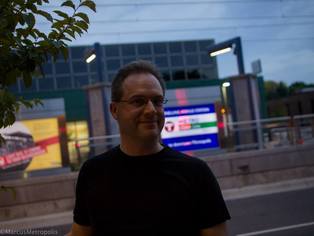 Matthew A. Everett is a Twin Cities playwright. http://www.matthewaeverett.com/
Matthew A. Everett is a Twin Cities playwright. http://www.matthewaeverett.com/
write?
Matthew: I tend not to like plays where people talk about theater. I also have a bias against plays that have writers - or any artists - as characters. I feel like it shows a lack of imagination. Come on, write about real people. The whole world doesn’t revolve around theater.
TV Boyfriend is a play that has both of those things - a playwright as one of the main characters, and a bunch of people who keep talking about theater. It’s so meta it makes me nervous. A writer friend of mine laughed and told me it’s almost like this play had to trick me into writing it.
The trick was initiated by Red Theater in Chicago. They do a writing challenge in the month of November each year. They post a prompt each day, and you can either write to the prompt or not, but you have to write something and post it in their online forum by 7am the next morning. So you not only write it, but everyone else is also going to be able to read it. Everyone puts $15 in the pot, and Red Theater takes percentage off the top as a mini-fundraiser. The remainder of the money is split between however many of the writers who sign on make it all the way to the end of the month writing something every single day. I figured it would be a good way to get me to refocus on my writing and blast past my internal censor. Plus I might get raw material for a new play or two. There were 57 writers participating this year, 31 of us, made it to the end writing every day. So I got a new play, and a $22.06 payout, out of it. Not bad.
Halfway through the month of November they posted this:
“Writing Challenge – Treat Yourself - Write something that only you understand and that probably only you enjoy. If you're not giggling to yourself or blushing you're doing it wrong. Listen to your Id. Be naughty! Be coded. Be fun. Comment on your work as you do it. Break and forget any and every rule except that writing can be FUN. F-U-N! Crack yourself up. Fall in love with yourself again. Masturbatory writing can unleash some wonderful creative energies. Treat yourself.”
That’s where the first half of the first scene of the play came from, and it’s stayed essentially the same. Four days later I thought, “I think I know what the scene between the writer and the sister looks like.” So instead of writing to that day’s prompt, I wrote that scene instead. For the next twelve days, every day I ended up writing a new scene for TV Boyfriend. That got me almost to the end of the month. And when I looked up, I had almost 130 pages of dialogue. There’s gotta be a play in there somewhere. So I started putting it in order and giving it some structure. Then I realized I needed some bits between the scenes to allow the actors to change their clothes if nothing else, and also to allow the audience to mentally make the transition from present to past and back again. One of those things was journal entries from the character of Jake. The other was a song written by the character of Ken - who, like me, is learning to play the guitar. So it didn’t need to be a great song, it just needed to be a song. Which I’ll be playing at the reading in the different sections where it appears in the script.
So in a lot of ways, TV Boyfriend decided that I was going to write it, rather than the other way around.
What's your favorite line from the play...right now, of course, since the
play is still being developed?
Matthew: There are so many I really like, that’s a tough one. Also I’m not sure how much sense any of them make out of context. But if I was forced to choose, it’d probably be: “As far as I’m concerned, you are the prize in this box of Crackerjack.”
Just because it’s almost unbearably sweet in the context of the scene. So it’s the line that always makes me happy.
Who do you think will appreciate this play? Who is this show for?
Matthew: Anyone who appreciates a good love story, but I think anybody gay looking for a positive story dealing with love, relationships and coming out will have a special connection to it. And theater junkies and writers will have a lot they can latch onto as well.
What inspired you to become a Playwright?
Matthew: I’d been writing almost as soon as I could read when I was a kid. I even had a little red, white and blue plastic typewriter (remember typewriters?) as a birthday present at a young age. When I got involved in theater, which was inevitable since my mom was heavily involved in the local community theater, I realized I had a facility for dialogue. Prose was never my strong suit, so playwriting was a perfect fit.
What was your educational path and did it prepare you well for a life in
the arts?
Matthew: I got a fantastic hands-on liberal arts education at Indiana State University in Terre Haute, Indiana - a double major of Communications (Radio/TV/Film) and Theater. I was accepted there and at a bigger name school but the difference between the campus tours is what sold me. At ISU, they took us into TV studio and got our hands on the cameras and the control room. The other school pointed out the building the TV studio was in up the hill as we walked past, essentially saying that if we also went to grad school here, we’d eventually get a chance to play with the toys. While attending ISU I got to do a little bit of everything - acting, writing, directing, design, stage management, shop, and tech crew. (I started as just a Theater minor but after my first year, I’d spent so much time at the theater that I figured I might as well make the double major official.) I learned what my strengths and weaknesses were, and I also learned to appreciate the role everyone plays in getting a script up on a stage in front of an audience.
My grad school focus at the Yale School of Drama was in stage management, which gave me an even greater appreciation of everyone’s role. But the writing was always there. My best friends in grad school were the playwrights. I just didn’t trust myself enough as a writer yet. I moved to Minneapolis after grad school and got a job as a stage manager. Finally, I’d spent one too many days in rehearsal saying to myself, “I can write better plays than this.” So I sat myself down and figured, either shut up and do your job, or get out of stage managing, take a desk job and focus all your creative energy on writing. I gave myself five years until I’d start to worry if I’d ever get a play on stage. I got my first production in three years. I like to think my background means I always have an eye on how the story can be told, and what I’m asking the creative and production teams to do - writing for the way actors speak, understanding what set and costume changes require in real time, etc.
What are some upcoming projects that you are excited about?
Matthew: Of the ideas for scripts I’m noodling over at the moment, first in line is a trilogy of short plays following the same set of characters through their 20s, 30s and 40s, using an ensemble where each of those age brackets takes prominence in one story, and serves as the supporting players for the others. The whole thing pivots around an atheist and a minister meeting and falling in love, and having to deal with the notions of how religion, faith and belief factor into their life together. Various manifestations of God make cameo appearances. The overall working title is The God Trilogy. The goal is to design them in such a way that they can be done separately or presented all together, interwoven and reflecting off one another thematically in a fashion similar to the way Krzysztof Kieslowski’s Three Colors trilogy of films does.
There’s also a riff I’m doing on Chekhov’s Uncle Vanya in which all but one of the characters are women, called Autumn Roses.
Also I’m trying to revisit and finalize the script for Love’s Prick my modern day riff on Shakespeare’s As You Like It that I workshopped back in 2007.
I don’t have any other readings or productions in the pipeline at the moment, but I’m pushing to get more of my scripts out there in the world so with luck that will be changing soon.
I was really excited to see that you are using a hashtag for the show!
#TVBoyfriend. Is that something new for Workhouse and what do you see
as the benefit of including that in your show information?
Matthew: Workhouse is trying to figure out the most effective way to generate interest in the different plays that are being presented in The Greenhouse Project monthly play reading series. Hashtagging #GreenhouseProject and #PlayTitle is something we’re playing with, along with trying to pull daily quotes from the play to see if we can pique people’s interest with things that are funny or odd out of context - clues to the play that will only make sense if you come and hear the whole thing.
How did Workhouse Theatre end up doing a reading of your play this February?
Matthew: This wasn’t the plan. Another play and playwright were on the schedule for February, but just a couple of weeks ago the playwright in question contacted us saying he was having health issues and needed to postpone. As we’re still working our way through reading scripts and deciding what to put in our March and April slots on the schedule for The Greenhouse Project, having February suddenly open up as well was a challenge. “TV Boyfriend” is still very new in its development. It didn’t even exist in October of last year. But I’d banged it into sufficient shape through my writing group and their feedback that I felt comfortable showing it around. Plays in progress is what the reading series is supposed to be for, so to buy us some time to read and decide on other plays for March and April, we decided to put TV Boyfriend on the calendar for February.
We’re really trying to grow the audience for the reading series and help introduce writers and audiences and local artists to each other with The Greenhouse Project. Hearing the words read aloud by actors is invaluable to a playwright. Hearing an audience’s response, both in the moment of the reading and in discussion afterward, is equally invaluable. So the more, the merrier. Come out and support new work and help it grow and get better.
Attend Workhouse Theatre's Next Free Public Reading
|
Monday, February 8, 2016, 7pm
Reading of Matthew A. Everett’s TV Boyfriend Free, donations welcome About the play: Jake Gilmore, 24, is an Olympic freeskier on the X-games circuit about to come out of the closet in a very public way. Ken Markus, 48, is a gay playwright who’s been out longer than Jake has been alive. Despite differences in age, experience and profession, the two men have formed a loving relationship which has somehow survived a year in the closet. Coming out to family and friends may prove just as treacherous. The play "TV Boyfriend" alternates between two timelines – the events in the present surrounding Jake’s coming out, and the night Jake and Ken first met, which turned into a long weekend together forming the foundation of the relationship that prompted Jake to step out of the closet and into the light. Directed by Lucas Skjaret Cast: Maxwell Collyard (Jake Gilmore) Ben Wagner (Ken Markus) Brian Coffin (Jasper) Kathy Kupiecki (Robin Gilmore) Erica Fields (Jamie) Sara Wells (Stage Directions) |
Save-the-date for future Greenhouse Project script readings:
Monday, March 14, 2016, 7pm Monday, April 11, 2016, 7pm Monday, May 9, 2016, 7pm Monday, June 13, 2016, 7pm
The Capri Theater
2027 West Broadway Minneapolis, MN 55411 |

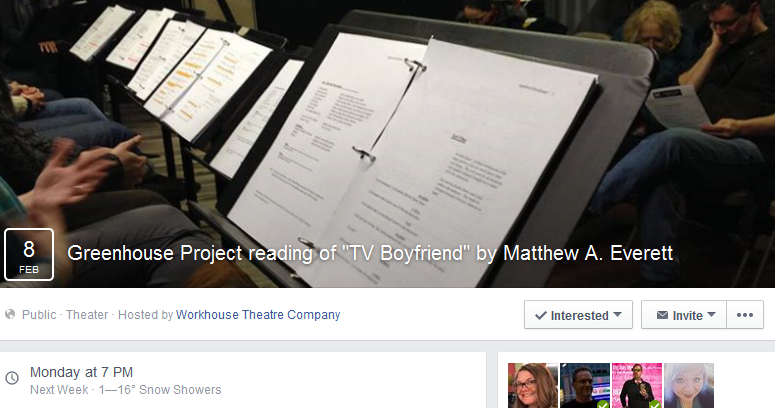
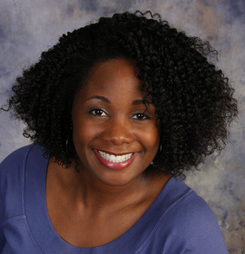
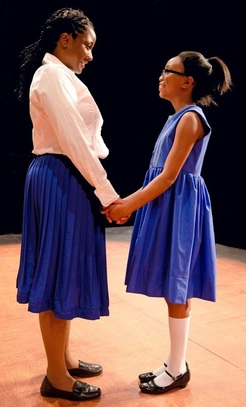



 RSS Feed
RSS Feed
